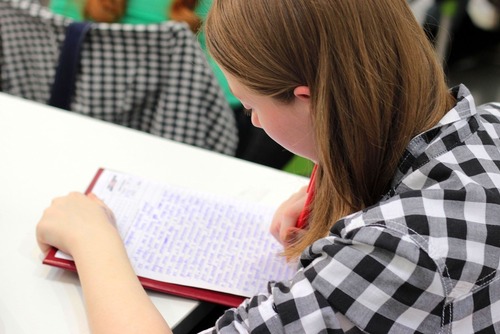If you want to combine learning and also travelling, there is nothing that should hold you back. All you need is a little preparation and have a plan of action to get started.
There are so many courses which can now be completed remotely, so why not take advantage of this and travel the world in your spare time.
However, if you are planning to travel, and you are also a student, you might worry about balancing it with your study workload, and understandably so.
Just imagine this, you've got deadlines, but at the same time you are staying in a hostel and everyone is going to go on an epic day trip or night bar crawl. Do you go? But what are the consequeneces if you don't write your complete homework, an essay or study for exams?
Check out our top tips for how you can enjoy a trip, whilst also not neglecting studying.
1. Choose the Right Course
There are so many different courses available to study without actually needing to be in a physical classroom, from completing a degree, learning a new skill, taking an TEFL course or improving your language skills - just to name a few. Make sure you pick a reputable course which is accessible, has a flexible programme and you think you will be able to complete.
2. Decide Where to Go
Choosing where to go can be one of the hardest decisions you will need to make. Will you go to explore one country, or multiple? How long will you be away for? It's important you check where you would like to go, and also if it is even possible to get an internet connection.
For example, in some countries in Africa, internet access isn't available everywhere, the same if you plan an off the beaten track adventure. But if you choose modern and high tech locations, you shouldn't have any problems.
Also try to consider where you think you can focus most, a busy cafe in a city, or a hammock by the beach. Only you can make this decision. Also consider time zones if you also need to attend online classes.
3. Get Prepared
If you know you have an up and coming trip, try to do as much studying or work as possible before departing. This way you will have less to do whist away meaning you can dedicate more time to enjoying your trip. Don't forget any study materials so you can study while away, or make online copies.
4. Invest in the Best Tech
Its vital you have a modern and good quality laptop, tablet and phone so you can study remotely. You don't want your laptop breaking on you whilst away so a reliable and modern computer, tablet and phone is a must.
We also recommend you consider purchasing a portable wireless dongle, this device will let you use the internet in lots of locations even where there isn't WIFI available. You also won't pay roaming fees that usually come with using your phone abroad.
Protective sleeves, a universal adapter and a portable battery charger for your gadgets are also recommended.
5. Take Out Insurance
Just incase you have any accidents or someone steals your gadgets, make sure you are covered by having a good insurance policy. This will also allow you to buy new equipment.
6. Make Sure You Have Internet Access
Thanks to the internet, you can now study from anywhere in the world. In most worldwide locations, it is possible to take a laptop, tablet or phone to a cafe, hostel, hotel or public space with Wi-Fi access.
You can also learn on the go as more and more private and public buses, trains, planes and transport hubs now provide free WIFI for travellers.
Make sure you book accommodation with free WiFi, or search out places where you can potentially study if not. This is especially important if you need attend virtual classes for attendance.
7. Get Expert Help
Being far away from a real classroom environment can make getting help from teachers and experienced staff difficult. But there are lots of educational forums, downloadable books and websites where you can get help. Downloading books is ideal when travelling as it saves you carrying around heavy books in your bag.
If you are worried about getting work finished and wondering who can help me do my assignment if I am abroad or lack the time? In such a situation, you can always get professional academic writing help online.
Lots of qualified authors provide support with any college papers. They help students polish their work to excellence and they can do the task for you entirely.
Professionals deliver unique and well-researched assignments right on time. It is a great way to keep up with deadlines and have more time for your blog.
8. Remember Your Access/Passwords
Some universities and companies create online learning systems for remote students. Make sure you have access to an online portal before leaving home. It may be inconvenient to communicate with tech support specialists from a foreign country, especially since they may not work on weekends and international roaming is rather expensive.
9. Know Key Dates
Check in advance when or if any assignments or work need be submitted and make sure you prioritise the most important ones. After all, you don't want to spend all your time studying last minute desperately trying to finish essays or activitiesAt the same time, doing too much studying and not enough travelling can cause you to not enjoy the experience enough.
10. Create a Study Timetable
Not many things compare to traveling, but if you are going to be exploring whilst also on a course, you really need to schedule time towards studying. Okay you might miss out on some exciting activities or excursions, but you really need to remember what is most important.
It is crucial to compile a study timetable so you make sure you can focus on important tasks. Working out what works best for you in terms of locations to study and also times of the day will really help you to be more productive.
Try to list your responsibilities and tasks, write deadlines and the time needed to complete tasks without having to rush and lower the quality of the work. You could create a to-do list for each day with both entertaining and learning tasks.
Planning learning sessions is recommended, decide how long you will study and when exactly. People have uneven productivity at different times of the day. Some people like to study in the morning, somebody – at night. Be sure to divide your day and take lots of breaks.
11. Keep Connected
Try to chat to fellow students and also teachers to make sure you are up to date with your course and if you need any help don't be afraid to ask.
12. Get Rest and Sleep
Travelling can be really exciting, but also tiring and its important that you do rest and sleep so you can 100% focus on your studies and write effective work. Being tired and lethargic really will affect the quality of your work.
13. Make a Bucket List
List all the places you want to go and possible tourist activities: this way you will be able to work out how much time you have to see important locationsand try to hit all the best events.
14. Stay Healthy
There are many important things to do when studying abroad. But if you are not feeling healthy your work and also experience overseas will struggle. Eat well, drink plenty of fluid and take care of yourself. Be sure to buy personal travel insurance before departing too - this is vitally important.
15. Be Social
If you plan to travel solo, be sure to check local events, stay in social accommodation, chat with other students on your course online and keep yourself busy.
16. Enjoy the Experience
Combing both travelling with studying can be one of the best experiences ever, you will get to be productive and also see amazing places in your spare time. Just plan ahead, make sure you focus on actually studying (it can be easy to get distracted) and you shouldn't have any problems completing work.
Going travelling is one of the best things in life isn't it. The ability to travel around, see new places, meet new people and experience new cultures is amazing. Hopefully our recommendations will help you to balance socialising and studying, and help you to pass a course.
Have you got any recommendations for how to study productively whilst travelling? Let us know in the comments section below.








